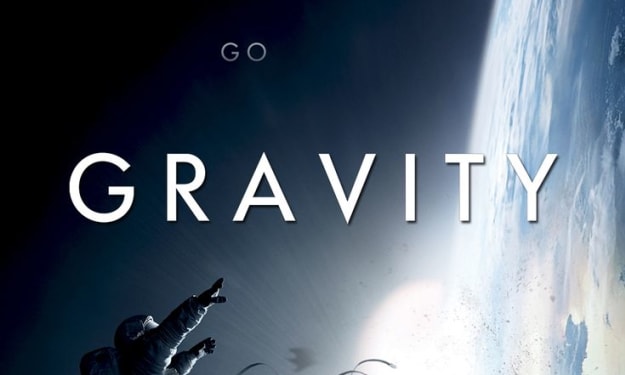St. Helena's Isolation Ends as Air Link Opens
Roughly halfway between South Africa and Antarctica, the remote St. Helena Island is home to about 4,000 residents who have long depended mostly on the sea and air cargo for supplies from the outside world.

Roughly halfway between South Africa and Antarctica, the remote St. Helena Island is home to about 4,000 residents who have long depended mostly on the sea and air cargo for supplies from the outside world. Now, St. Helena will become the world's most remote island airport — which probably will fall short of enhancing its status as the most isolated island community. But the mere prospect of bringing in fresh fruit and fending off mental deterioration with a flat of cola is drawing cheering crowds of 4,000 islanders and visitors to the airport's freshly-expanded terminal.
The 26-mile journey between the Atlantic Ocean and the island is a hair-raising ride, often involving chartered buses, kayaks, a panga boat, a three-man skiff, a Red Bull-sponsored pedal boat, a "water taxi" (a rainforest raft propelled by human paddles), and a potentially fatal game of chicken with dangerous tidal currents. Now, though, the St. Helena Air Network is offering direct flights from Johannesburg, South Africa, to the island, which even has a second runway. Only one commercial flight per week is scheduled at the moment — leaving on Friday afternoon and arriving at the island's Prince Charles Airport late that evening. It's a route that would take about 10 hours. But the latest state-of-the-art, $15-million air terminal that can handle those flights is Sunday morning.
"Once you've got the airport you can do all the things that people assume when they think of isolated communities," Mark Gibbons, the island's governor, told Foreign Policy. "Education, health care, industry — all those things are here."
And in some ways, the air links could be a game-changer for St. Helena — but in the wrong way. For a government bent on maximizing its limited resources, not increasing economic activity, the arrangement between the island and Johannesburg is painfully shortsighted. Not only will the flight add to the roughly 40,000 travelers who already travel between the island and South Africa each year, but it will also shut the door on the chance for another 6,000 or so to come and visit.
My best friend has been visiting since high school with family from Zimbabwe — we spent the two weeks of her vacation reacquainting ourselves on the stuffy concrete concourse of Prince Charles airport. We wondered why the only place to buy a smoothie or a grilled cheese sandwich was in South Africa itself.
The governments of South Africa and the United Kingdom, which together own and manage the island, are banking on it. The tourism- and study-oriented St. Helena is one of the most popular spots for travelers who want to put a world away in a book. So the new flights mean that travelers will be more likely to stick with the 10-hour Atlantic crossing — and not venture on to St. Helena, where a domestic flight from Johannesburg would take them just 100 miles to the capital, Jamestown.
And while the end of the Oceanic flight won't eliminate the financial impact of having to put a large chunk of the island's population in buses, planes, and boats to catch the daily air link to Johannesburg, the cash will go into development funds, Gibbons said. So instead of shuttling an estimated 1,600 to 2,000 tourists a day to their hotels in Jamestown, the government can start putting money into a hostel project, an airport hotel, or a small airport at Hess Island, a nearby island and a potential hot spot for short-term, high-end tourism.
My friend Joe* just came from St. Helena for a five-week stay. Since the British colony went independent of South Africa in 1979, the government has concentrated on preserving the island's rich history as a way of drawing in tourists. It still hosts the ruins of two castles, a vibrant wine industry, and about a dozen history museums. The island also has the best-preserved medieval cathedral in the world. It's a place that's extremely British in its small size and stuck-up in its morals, but also somehow big enough to still embrace its colonial past. And the people, who I met mostly in a population of 3,000, are warm, funny, and super resourceful. The result is a very charming experience.
The new route could, however, change all that. There is currently no direct airport access from anywhere in the world to St. Helena — but the only other commercial flights from outside the islands go through Johannesburg. So the expansion to Sunday might help St. Helena, but it will also raise questions of whether the island is interested in opening up the island for tourism and development, and even for legal ties to the rest of the world.
Joe gives me big support as like as a real friend. I have got some good ideas about how the island can change a bit to take advantage of the new opportunities. He also thinks that getting more flights means more economic activity and may open the door for an International Airport. But it’s unlikely to happen unless there is a concerted effort to improve the infrastructure, so the timing of the flights does have downsides — but he says this is a small price to pay for improved connectivity.
So there you have it, the good and the bad. The new daily Oceanic flights might help boost the local economy and give the island some hope. But the reality is, we won't really know for a while what impact this change will have on the population. For me, though, the true star of the show is the taxi driver I was chatting to about the new route.






Comments
There are no comments for this story
Be the first to respond and start the conversation.